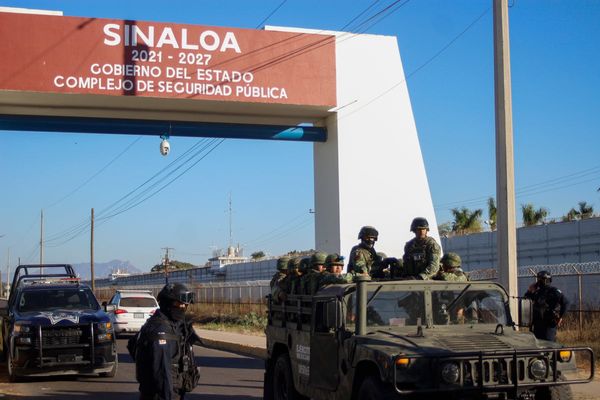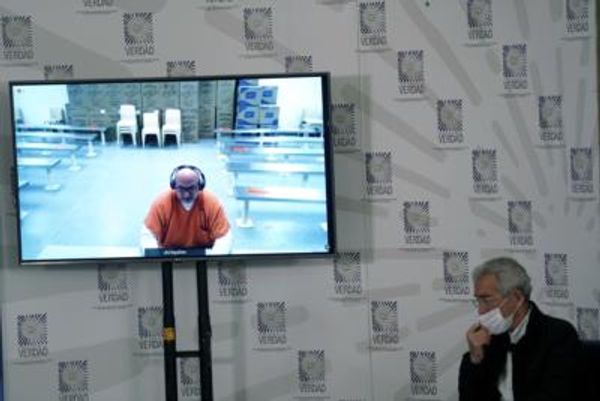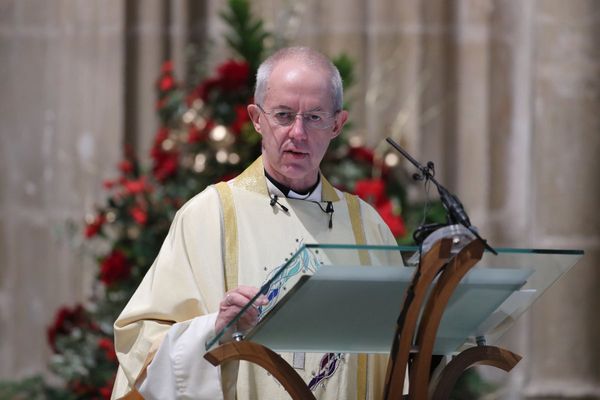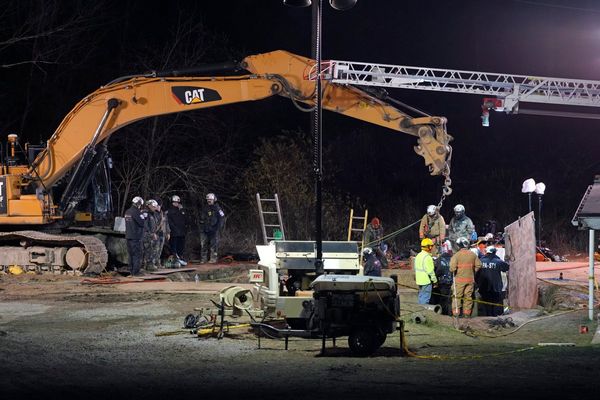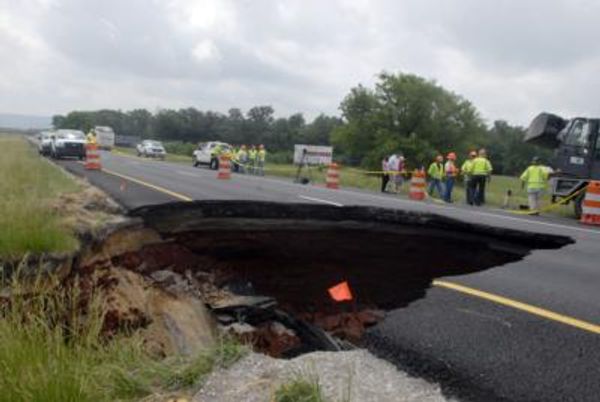Ashley Neill has been shooting kangaroos for 40 years.
He now runs a plant outside Hay in rural New South Wales, where carcasses are processed for the multi-million dollar animal trade.
He said he operated along a strict commercial code, but not everyone was following the rules – and now was the time to speak out about what he called the "dark side" of kangaroo shooting in NSW.
"Kangaroos have been a livelihood for me," Mr Neill said.
"I do agree they have to be culled because the white man [came] out here and put watering points where they weren't before. But do it humanely."
Two reasons to shoot
Kangaroos are a protected species in Australia, but can be lawfully killed under certain circumstances.
In NSW, graziers can apply for a licence to shoot kangaroos on their own land, where they are deemed to be a pest.
Professional shooters also operate culls on behalf of landholders, to feed a multi-million-dollar commercial trade in kangaroo meat and skin products.
But both programs are under fire after the first public examination of the industry in decades.
"I just thought this would be an inquiry into people's sensitivities," said NSW Liberal MP Catherine Cusack.
"I'm now completely 180 degrees from where I started.
Ms Cusack sits on the NSW Parliament's Planning and Environment Committee, which spent months examining the health of kangaroos in the state over three public hearings.
"It's actually quite distressing to me that our kangaroos could be in such a predicament," she told 7.30.
The inquiry found there were "grave concerns" with the National Parks and Wildlife Service's oversight of kangaroo shooting by private land-holders, "as evidenced by the fact that they could not provide accurate figures on how many kangaroos have been legally culled."
The committee wants the auditor general to assess whether the NSW government is meeting its own legal obligations under the Biodiversity Act.
It also raised concerns about transparency and policing of the commercial program, which is managed by the Department of Planning, Industry and Environment.
But some evidence never made it to the inquiry.
Leaked documents raise policing concerns
Internal documents leaked to the ABC reveal the department's own staff have voiced concerns about the way the kangaroo management program is policed.
A 2019 audit found it was "impossible" to work out whether the number of kangaroo carcasses processed at different points in the industry chain were "true and accurate".
"This is a significant finding, as it … may undermine any positions taken in relation to the legitimacy and sustainability of the industry," the audit found.
If commercial shooters don't kill kangaroos with a shot to the head, it has to be reported.
But the audit found in 70 per cent of cases where that happened, the department took no compliance action.
There were no licence suspensions or prosecutions between 2015 and 2019, and infringement notices decreased fivefold over the same period, from an average of 50 per year to just 10.
The department declined an interview with the ABC.
In a statement, the department said it had issued 16 penalty notices in the 2021 financial year.
Leaked emails from the department's senior management reveal there were 785 reporting breaches from licensed animal dealers in 2020.
Only one was issued with a penalty notice.
The department said in early 2021 it introduced a new approach where licensees were unable to renew licences unless their returns were up to date.
In a statement, a department spokesman said its Kangaroo Management Program included "quotas, compliance, animal welfare and population conservation" measures.
It said this ensured the program's "integrity and transparency" and that it was confident its scientific methods to estimate kangaroo populations were "robust and precise".
The Kangaroo Industry Association's President, Ray Borda, said the commercial trade was committed to transparency.
He said it was the department's responsibility to regulate the commercial program.
"The people that should be out there checking it are the people who make the rules and regulations – that's the Department of Environment, or safe food; they've gotta be out there policing people and fining them," Mr Borda told 7.30.
"If that information isn't shared with us, we can't do anything about it."
Overhaul required for landholder licensing program
Ray Borda said it made no sense to only regulate the commercial trade, while farmers shooting kangaroos on their own land had open slather.
"There is no auditing and inspection, there is no traceability, there is no tagging, there's nothing there," he told 7.30.
"So I don't know how they can estimate how many animals are taken, whether they've been taken humanely or not."
Footage shared with the ABC from a landholder in central west NSW in 2018 showed a farmer wounding a female kangaroo in the body, with a joey visible in her pouch.
The eyewitness who filmed the encounter didn't want to be identified, but said the farmer then dragged the wounded kangaroo behind his ute.
Ashley Neill said he has also witnessed this kind of behaviour from landholders.
"They may survive for two or three days in the middle of summer.
"If they're female, nine times out of 10 they've got joeys.
"They suffer a hell of a lot and die in agony.
"And they will die of starvation and thirst."
He said the licensing program for landholders allowed cruelty at scale, and needed to be overhauled.
"If they're plague proportion, well, they do something about it, which is understandable, because they have to make a living, same as everyone else.
"But a lot of properties, in my eyes, they're not in plague proportion.
"And they cull kangaroos for the sake of doing it.
"I have spoken to kangaroo management about it, with no response.
"And this is why I'm sitting here today, to see if we can get a response."
'There's nobody checking you'
The NSW National Parks and Wildlife Service is the agency responsible for prosecution of animal cruelty against kangaroos from private landholders.
It's under the same department that controls the commercial program and told the parliamentary inquiry it does not observe culls to monitor compliance.
Over the past 10 years, the agency said one case of animal cruelty had been taken to court, and five warning letters had been issued.
"I don't understand how you can be issuing licences to destroy animals, to destroy wildlife without having an overall management plan for the future of that species," Ms Cusack said.
"You can do it as a social activity with all your mates on the back of trucks.
"And there's nobody checking you, other than probably concerned neighbours seeing what's going on, making reports to the department, which then doesn't appear to have any capacity to investigate."
Grazier Leon Zanker disagreed that landholders were resorting to cruelty.
"I absolutely reject that is commonplace among landholders, certainly that I know," Mr Zanker said.
"You're trying to highlight a very, very small percentage of what happens and blow it out of proportion."
The western district pastoralist has run cattle, sheep and now goats on his property outside of White Cliffs for the past 40 years, and gave evidence to the parliamentary inquiry.
"It's purely about management of the number of kangaroos to be in sync with the ability of the landscape to support them."
The parliamentary committee has asked Environment Minister Matt Kean to consider the kangaroo inquiry's recommendations before he signs off on the next five-year kangaroo management plan.
In a statement, the minister's office said it would respond after it carefully considered all of the report's findings and recommendations. That response is due in April 2022.
Ms Cusack wants the department to be stripped of the responsibility to manage kangaroo populations in NSW, and for the "entire governance framework" to be "rethought".
Watch this story on 7.30 tonight on ABC TV and iview.
